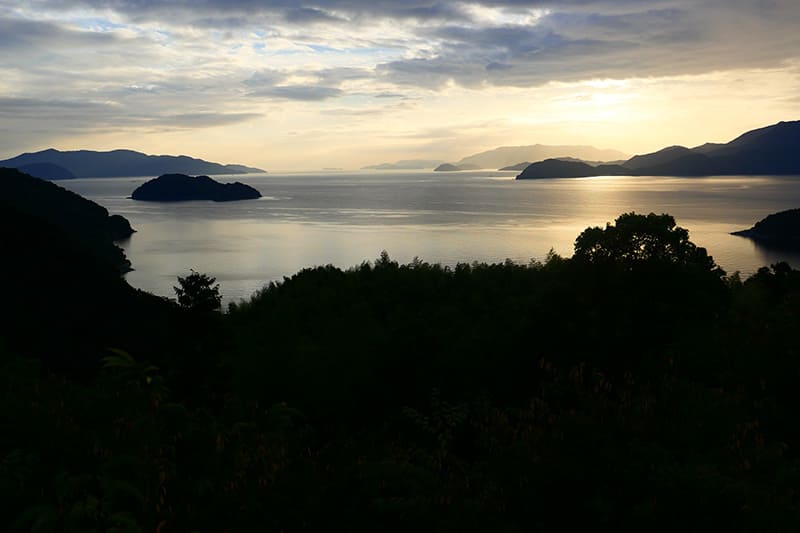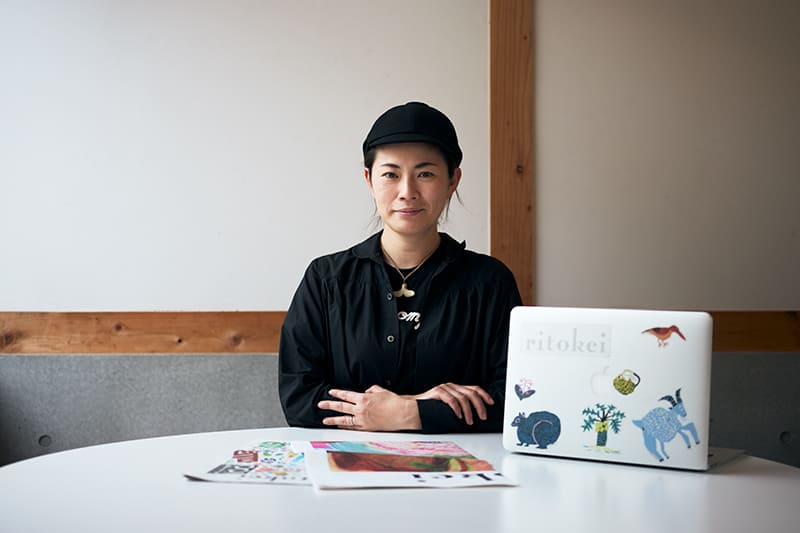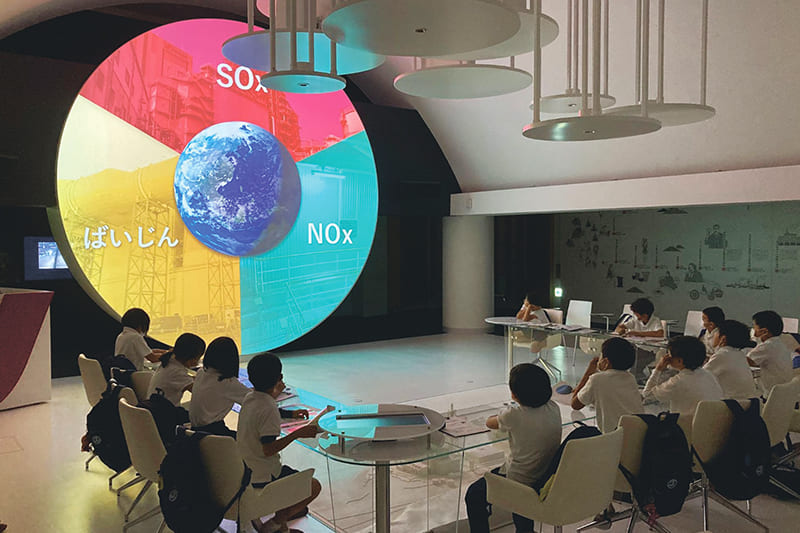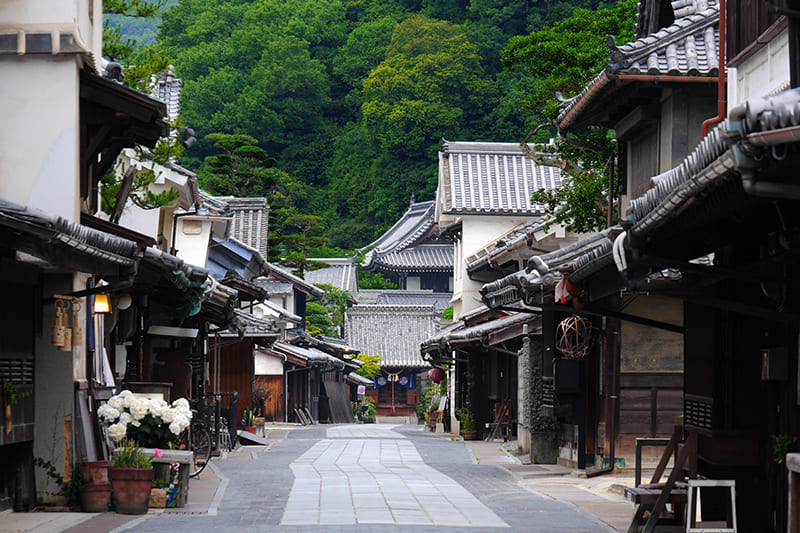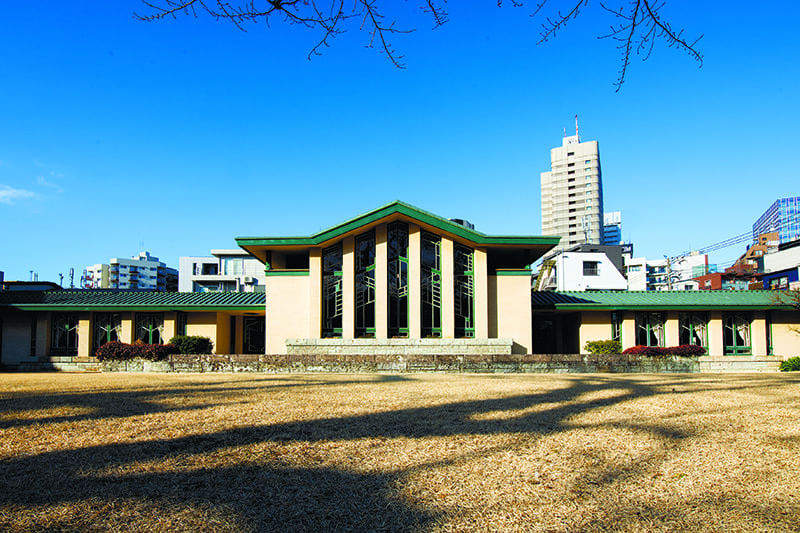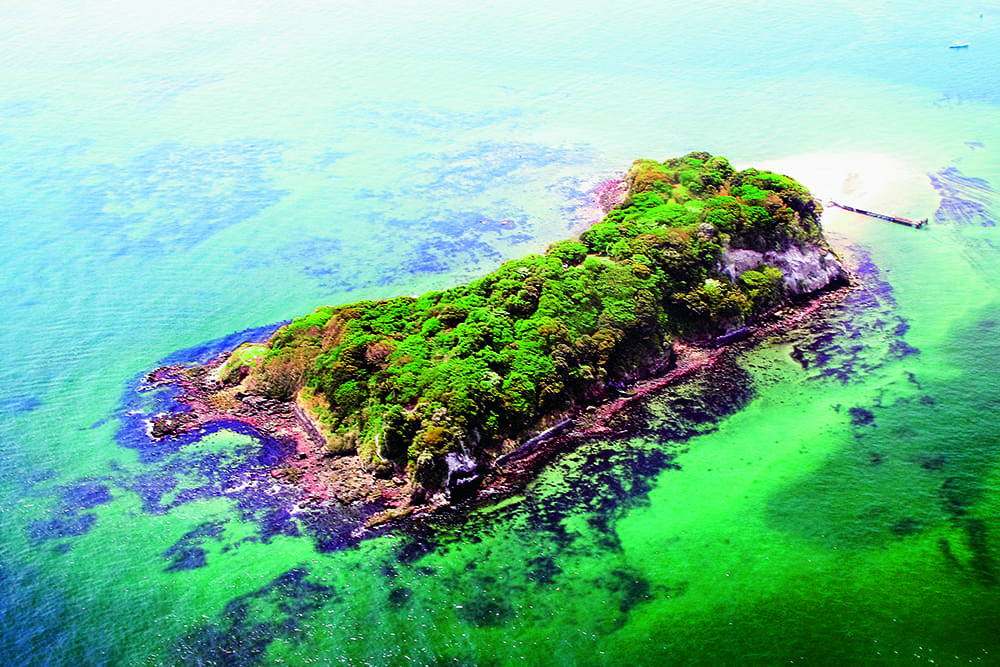March 29, 2024
Students ‘study abroad’ on island of Suo Oshima
SATOYAMA CAPITALISM 2024 VOL.6
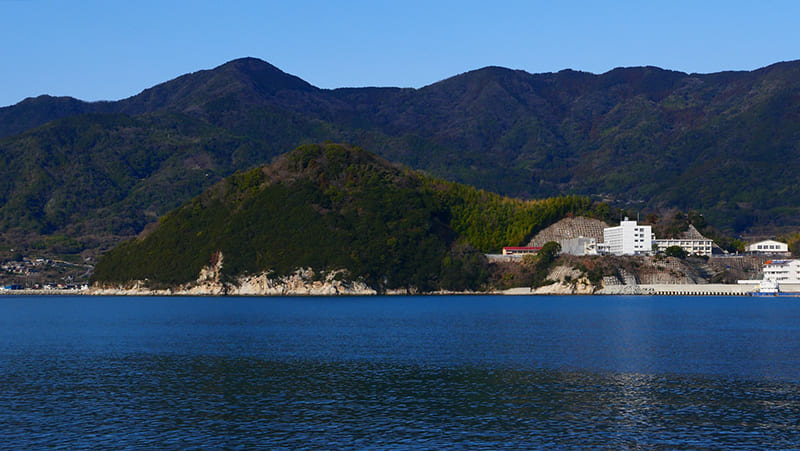
PHOTOS: KYOSUKE INOUE
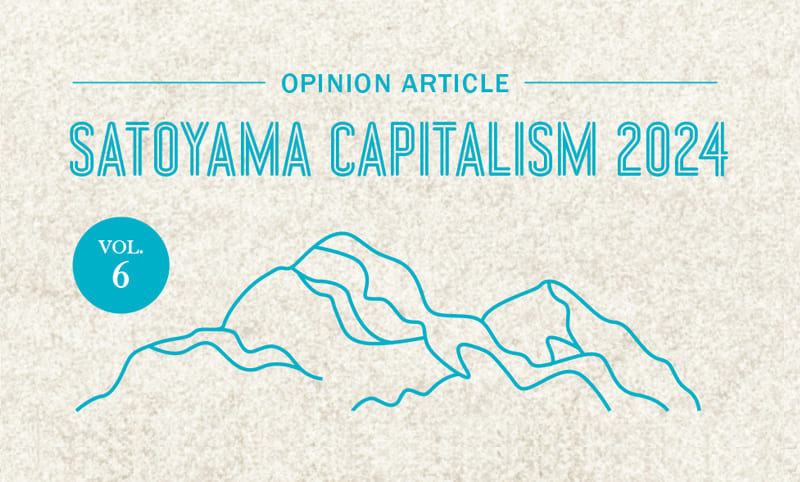
Afreshman at Suo Oshima High School told me, “I studied very hard for entrance exams for high school. So I thought I didn’t want to spend three years just for university entrance exams.” She is from Kawaguchi in the faraway prefecture of Saitama. She chose to be here through a “study abroad on an island” program.
“One day, I had a chance to listen to the principal of Suo Oshima High School, who told us how wonderful high school life could be in Suo Oshima. He gave us some salt made by students with locals. I made an onigiri rice ball with the salt the next day, and it was so delicious that I wanted to visit the island. Soon after, I visited the high school and the dormitory, then I decided to spend three years of my life here.”
Suo Oshima in Yamaguchi Prefecture floats in the Seto Inland Sea. Since the island has for a long time had the country’s highest rate of aging, there was a time when it was thought that the survival of the school was in jeopardy. Most graduates leave the island, and very few come back.
People at Suo Oshima High came up with an idea: “If students learn the charms and prospects of the island, they may come back and thrive on the island in the future!”
A unique curriculum to teach what the island has, not what it lacks, was created together with entrepreneurs who had moved here and started their own businesses. After six years of trial and error, Suo Oshima High now has dozens of students coming from junior highs elsewhere to study on the island every year.
Another freshman girl who came to study here had a different motivation. Her parents, who run a blueberry farm, had driven with her all the way from remote Kumamoto and visited Setouchi Jam’s Garden here [see Vol. 2 of Satoyama Capitalism in the November issue]. The experience of visiting the jam store and interacting with locals made her want to come study on the island. She said she always wants to hear stories from adults who are taking on wonderful challenges and living life to the fullest.
These two high school girls live in a place they never knew before, and their lives are always full of discoveries. For example, public transportation: In Saitama, you just go to a station and take the next train. In rural Kumamoto, on the other hand, if you don’t know the timetable, you’ll end up waiting forever for a bus. They both laughed and said they had been surprised to learn such a difference. Maybe this is a trivial kind of story that can be found elsewhere, but for them, the experience was definitely exciting because they had taken the plunge to study away from home.
Sometimes students fall asleep while chatting on a bed in someone else’s room. On holidays, they might go to the beach together. They hear mysterious sounds in the dormitory and have fun telling ghost stories. With their eyes sparkling, they said passionately that they had never thought they could talk to classmates like this and have so much fun every day.
I asked them frankly how beneficial this experience would be for their futures. The girl from Saitama said it was a tough question, but “there are new discoveries every day at school, in the dorm and even in town. In the mornings, an old lady greets me with ‘Good morning’ and ‘How is life on the island? Is it OK?’’ I never had such an experience before. I want to believe that I made the right choice to come here and run with it for the next three years!”
She doesn’t digress, fudge, heckle or demean. I felt like I saw in her something important that is lacking in modern Japanese, who are said to feel overwhelmed by a sense of confinement.
And there is another thing I felt strongly about.
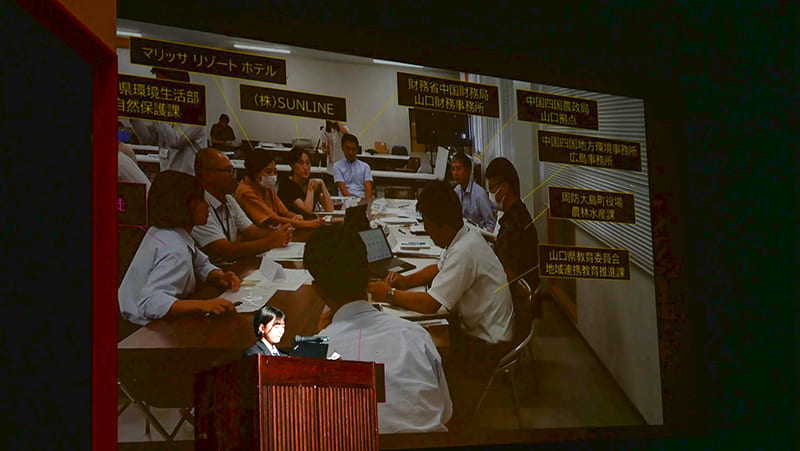
In today’s world, where we are flooded with an endless flow of information from smartphones and other devices, “healthy communication” seems to have been lost, especially in cities like Tokyo.
Almost everyone on commuter trains stares into a cellphone, their ears plugged with earbuds. Seeing older men absorbed in playing games on a phone is no longer strange. Everyone remains silent as they enter and exit the crowded cars.
Even when you go to an izakaya pub, the only people you talk to are the ones you came with. There are no more chance encounters with strangers at the next table in which you hit it off and become friends. You never know when some creep might attack you, and so avoiding talking to or even making eye contact with strangers may be inevitable. But in such a society, how will a bright-eyed young generation grow up?
It makes me think that the decision those high school girls made to study away from home on the island has a broader meaning.
In 2022, students at Suo Oshima High won a top prize in the Regional Revitalization Policy Idea Contest sponsored by the Cabinet Office (which also means that there are similar high schools all over the country). The policy idea they presented was “preserving coral while making it a tourism resource.” The local coral Nihon Awa-sango is famed as one of the world’s most precious corals, and their idea is to build a boat with a transparent bottom for observing corals like in an aquarium. Collaborating with local businesses to create tours with overnight stays would increase tourism. With the participation of towns and prefectures, the first steps toward making this a reality have now been taken.
In 2023, the juniors added new ideas, raised funds through crowdfunding and aimed to participate in the national competition. They took on the challenge of creating something from nothing, and through repeated discussions and trial and error, they came up with their own top policy ideas. They were placed first in Yamaguchi Prefecture and advanced to the Chugoku regional selection, but failed to qualify for the national competition. However, something unprecedented happened: Their self-made video was shown at the national competition. The first real step has been taken toward the aquarium boat where you can see Nihon Awa-sango coral. The seniors passed the baton to the juniors before graduating, and from there to those who had been freshmen. The Suo Oshima High School students will keep on running with the baton of hope.
KYOSUKE INOUE
Writer and TV director. Born in 1964, Inoue joined NHK in 1987 after graduating from the University of Tokyo. For over 30 years, he produced “NHK Special” and other documentaries and authored books. He currently is an adviser to the Sustainable Japan Network, a project of The Japan Times. The series Satoyama Capitalism 2024 will introduce readers to people who live by values other than “money first,” whom he has been covering for many years.
山口県周防大島。「島留学」のススメ。
1987年のNHK入局以来30年以上に渡り、ドキュメンタリーを中心に番組制作に関わってきたテレビディレクター/作家の井上恭介による全6回の連載コラムの第六回目(最終回)。今回は山口県・周防大島の周防大島高校への「島留学」を紹介する。
周防大島は一時期、高齢化率が全国一の島だったが、島に移住してきた起業家なども協力する形でユニークなカリキュラムが生み出された。そのひとつが「島留学」。日本全国の各地から、毎年数十人規模の中学生がこの島の高校に留学してくるという。話に登場するのは埼玉と熊本からこの高校にやってきた女子高生2人だ。周防大島高校は2022年、内閣府が主催した地方創生のコンテストで上位入賞した。彼らのアイデアは、ニホンアワサンゴを保護しながら観光資源にしたい。船底から「水族館のように観察できる」船をつくって、ツアーを組み、地元企業などにも参加してもらい、来島者を増やすというもの。町や県も加わる形で実現に向け、第一歩を歩みはじめた。
Return to Sustainable Japan Magazine Vol. 34 article list page

